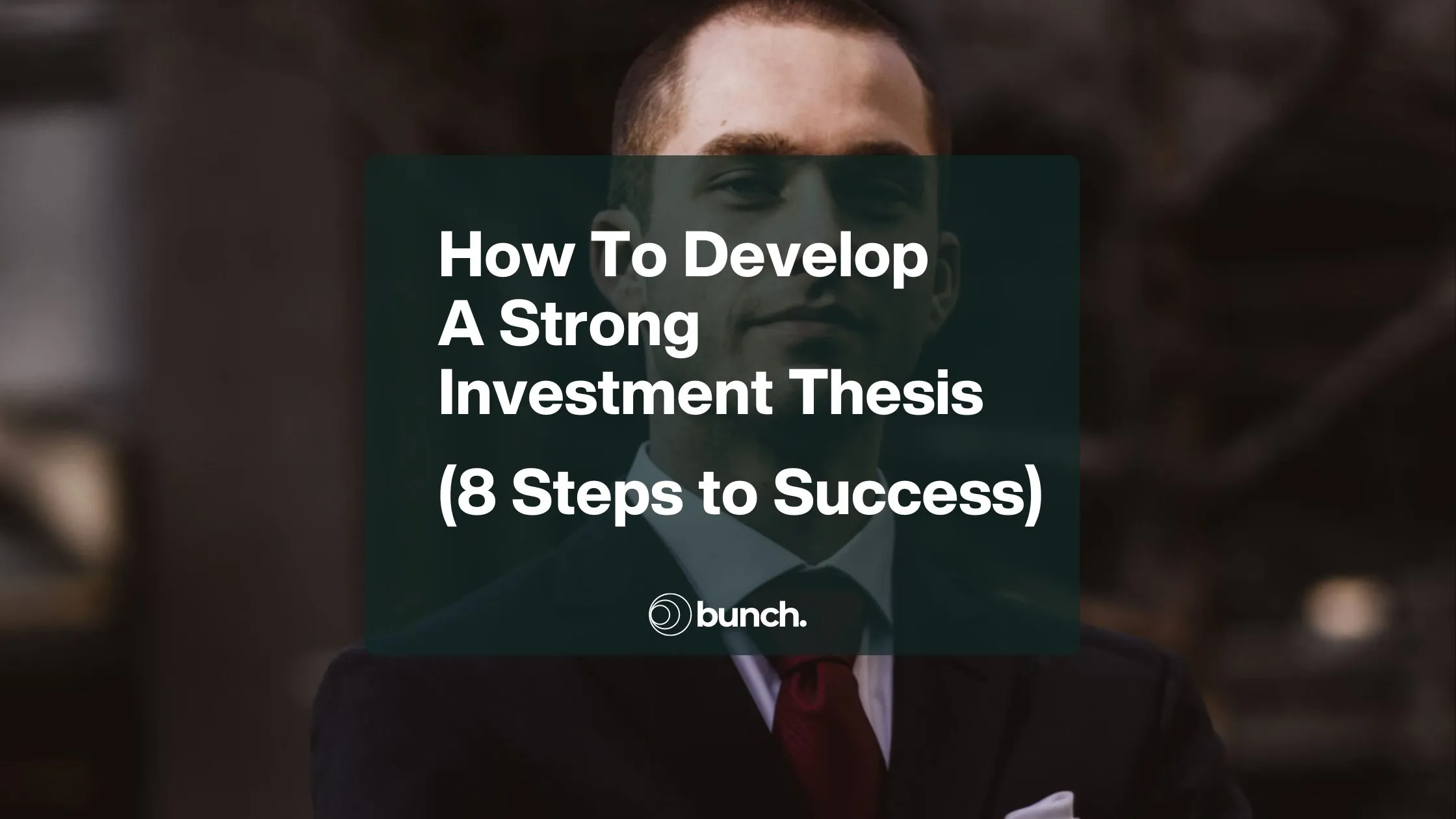Contents
A well-crafted investment thesis can help investors clarify their goals and evaluate potential investments, ultimately leading to a successful performance of the fund.
What exactly is an investment thesis, and why is it so important?
An investment thesis is a concise statement that outlines an investor's belief about the potential returns and risks of a particular investment. It is a framework that helps investors make decisions about what to buy, sell, or hold in their portfolio, and it is based on a thorough analysis of a company's financials, market conditions, and competitive landscape.
A well-crafted investment thesis can serve as a valuable guide for investors to focus on their long-term goals and avoid making impulsive or reactive decisions based on short-term market fluctuations. By clearly defining their investment goals and criteria, investors can avoid being swayed by emotions or biases and instead make rational and thoughtful decisions.
How can private investors develop a strong investment thesis?
Here are eight steps to follow:
1. Start by identifying the specific industry or market that you want to invest in. This should be based on your own interests, expertise, and goals as an investor.
2. Research the current state of the market, including trends, challenges, and opportunities. This will help you identify potential investment opportunities and develop a more informed investment thesis.
3. Evaluate the potential investment opportunities in the market, including the founding team, product, and business model of the startups. Look for startups that have strong potential for growth and differentiation in the market.
4. Develop a set of hypotheses or assumptions about the potential returns and risks of investing in early stage startups in the chosen market. This should be based on your research and analysis, and should include both the potential upsides and risks of the investment.
5. Test your hypotheses by gathering additional information and data, and by seeking the perspectives of other experienced investors. This may involve conducting interviews, attending industry conferences, or seeking out expert opinions.
6. Refine your thesis as needed based on the information and insights you gather. Be prepared to adjust your assumptions and expectations as new information becomes available.
7. Communicate your investment thesis clearly and concisely to others, including potential partners or investors. This should include a detailed explanation of your reasoning and a solid plan for realizing the potential returns of the investment.
8. Monitor the performance of the startups you invest in closely, and be prepared to adjust your thesis or exit the investment if it no longer aligns with your goals or if the underlying assumptions change.
Take the next steps with the bunch SPV or fund
Once you have developed your investment thesis, the bunch OS allows you to open standardized investment entities that are a) easy to understand, b) can be managed fully digitally and c) have significantly lower setup and management costs. We are on a mission to enable those who dare to take risks. Talk to us about how to get started with bunch.
We are excited to keep you posted throughout our journey to build the operating system for private market investors. While public markets have come a long way from the time when stock investments were made on costly phone calls, private markets are lagging behind. We want to take out the friction and free up time for fund managers, investors, and founders, allowing them to focus on the projects tackling the challenges of tomorrow. Subscribe to our newsletter here.
Disclaimer: The content presented herein is solely for informational and discussion purposes only. It is not intended to serve as legal, tax or financial advice or as an endorsement of any investment strategy. bunch does not provide legal, tax or financial advice. Readers should not base their investment decisions on the content presented herein or any other bunch-generated content alone and should seek appropriate professional advice. Nothing contained herein shall constitute or imply an offer to sell, purchase or enter into any transaction in respect of securities. The content contained herein is subject to change without notice. While we aim to present accurate and up-to-date information as part of bunch’s content, we undertake no obligation to update our content from time to time.
The best already build on bunch





























.webp)
.webp)
